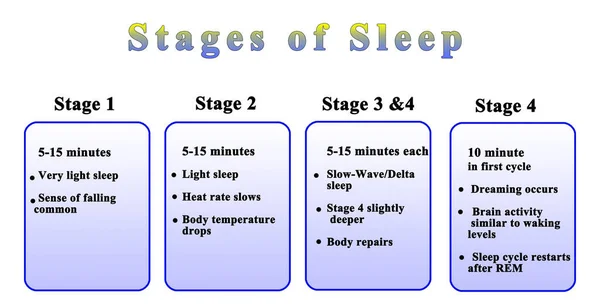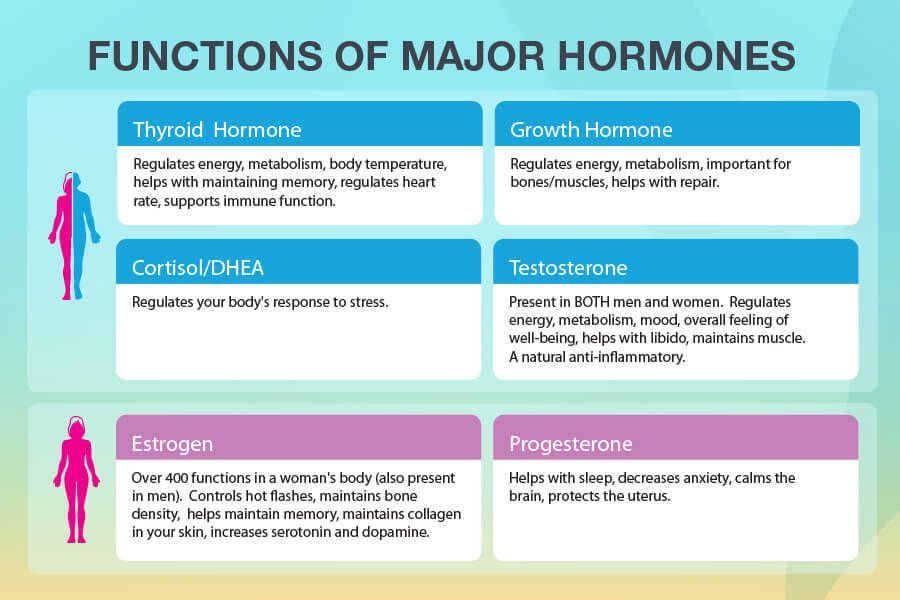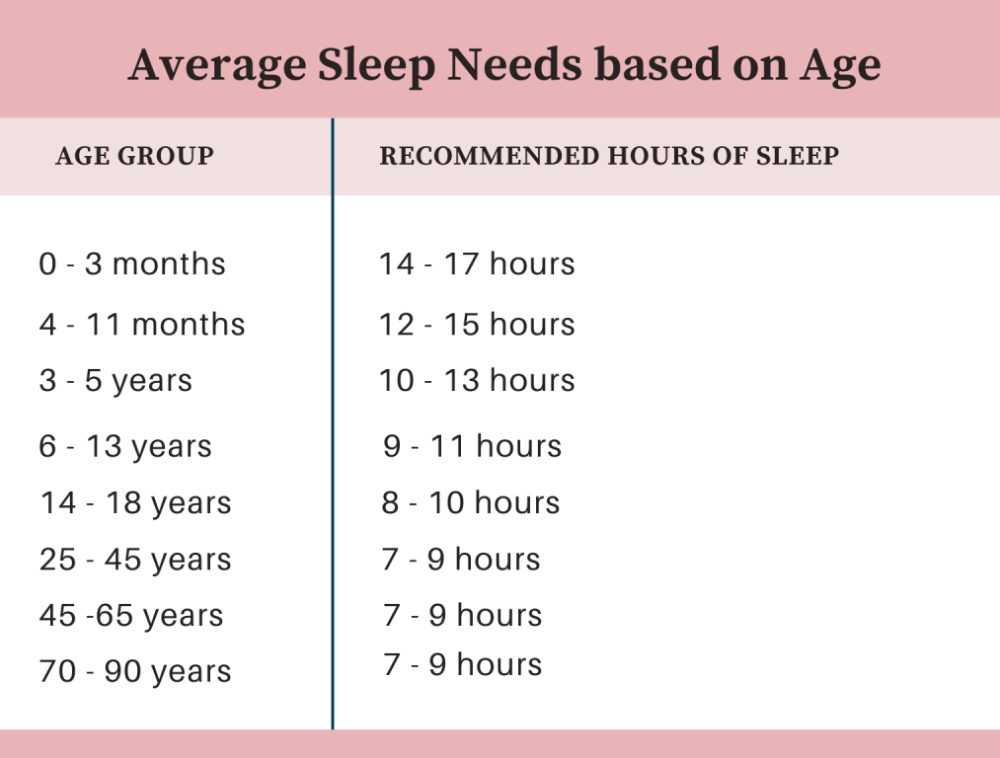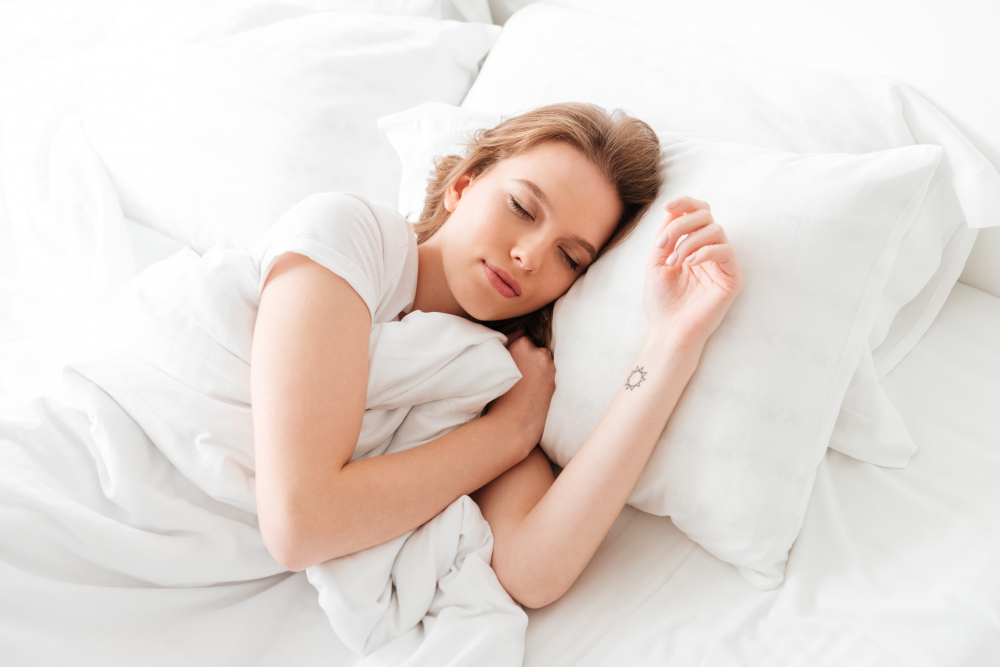
Sleep is a complex biological process that helps you process new information, stay healthy, and feel rested. While you are sleeping, you are unconscious, but your brain and body functions are still active.
During sleep, your brain cycles through five stages: stage 1, 2, 3, 4, and rapid eye movement (REM) sleep. Different things happen during each stage. For example, you have a different pattern of brain waves during each one. Your breathing, heart, and temperature may be slower or faster in some stages.
Certain phases of sleep help you:
You need all of the stages to get a healthy sleep. As people age, however, they often get less sleep or they tend to spend less time in the deep, restful stage of sleep. Older adults are also more easily awakened.
And it’s not just the number of hours of sleep you get that matters. The quality of the sleep you get is also important. People whose sleep is frequently interrupted or cut short might not get enough of certain stages of sleep.






The amount of sleep you need depends on several factors, including your age, lifestyle, health, and whether you have been getting enough sleep recently. The general recommendations for sleep are:
Sleep is important for overall health. When you don’t get enough sleep (sleep deprivation), it does more than just make you feel tired. It can affect your performance, including your ability to think clearly, react quickly, and form memories. This may cause you to make bad decisions and take more risks. People with sleep deprivation are more likely to get into accidents or tend to overeating.
Sleep deprivation can also affect your mood, leading to:
Irritability
Problems with relationships, especially for children and teenagers
Depression
Anxiety
It can also affect your physical health. Research shows that not getting enough sleep, or getting poor-quality sleep, increases your risk of:
High blood pressure
Heart disease
Stroke
Kidney disease
Obesity
Type 2 diabetes
Sleep deprivation leads to overeating and increased cravings
Have you ever noticed that you feel hungrier or have uncontrollable cravings for certain foods after a poor night’s sleep? It’s not just your imagination—there’s a link between sleep and hunger.
Studies show that even a single night of sleep deprivation changes the levels of our hunger and appetite hormones, leading to increased hunger. It also affects the way your brain’s motivation centers respond to the sight (or even the thought) of food.
Sleep loss changes the timing and release of appetite-controlling hormones. The stomach secretes a hormone called ghrelin that tells the brain you’re hungry. During sleep deprivation, ghrelin gets released in larger amounts. As the stomach fills, the body releases the satiety hormone leptin to start appetite suppression. However, during sleep deprivation, leptin gets released in smaller amounts. With the changes in ghrelin and leptin levels, not only do you feel hungrier but once full, your body doesn’t recognize that it’s time to stop eating. The combination of increased hunger with decreased satiety leads to overeating and unwanted weight gain.
Hormone release isn’t the only way that sleep loss changes appetite. Without adequate rest, cookies, candy, and other high-fat, sugary foods become more appealing because of changes in the rewards center of the brain.
How to combat cravings?
Getting more sleep can reduce food cravings
Sleeping enough I.e. according to recommendations (7-8 hours for adult) can suppress your cravings followed by mindful eating or less and thereby resulting in weight loss or weight management.
Another ways to avoid food cravings and sugar cravings are as follows:-





You can take steps to improve your sleep habits. First, make sure that you allow yourself enough time to sleep. With enough sleep each night, you may find that you’re happier and more productive during the day.
To improve your sleep habits, it also may help to:
Go to bed and wake up at the same time every day
Avoid caffeine, especially in the afternoon and evening
Avoid nicotine
Exercise regularly, but don’t exercise too late in the day
Avoid alcoholic drinks before bed
Avoid large meals and beverages late at night
Don’t take a nap after 3 p.m.
Relax before bed, for example by taking a bath, reading or listening to relaxing music
Keep the temperature in your bedroom cool
Get rid of distractions such as noises, bright lights, and a TV or computer in the bedroom. Also, don’t be tempted to go on your phone or tablet just before bed.
Get enough sunlight exposure during the day
Don’t lie in bed awake; if you can’t sleep for 20 minutes, get up and do something relaxing
See a doctor if you have continued trouble sleeping. You may have a sleep disorder, such as insomnia or sleep apnea. In some cases, your doctor may suggest trying over-the-counter or prescription sleep aid. In other cases, your doctor may want you to do a sleep study, to help diagnose the problem.
WhatsApp us